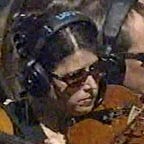What’s love/evil got to do with it?
written by Erin T.
A discussion around the concept of eschatology can often move one into speaking of ideas of a distant, fantastical future. The book of Revelation imagery of gold, jewel-laden city streets has paved the way and led to creative interpretations of the heavenly land that is not yet…but is to come. Personally, I think these discussions can have more of an escapist theme to them that takes people away from the here-and-now of life on earth as the future takes precedence over the present. Therefore, it was refreshing to hear from our Easter Orthodox spokesman for this week, Vladimir Lossky. Lossky views eschatology as a topic that not only informs the future but also the present. His thoughts on eschatology offer some definition on the human experience.
In the chapter titled “Dominion And Kingship: An Eschatological Study” in his book In the Image and Likeness of God Lossky dances around the topic of eschatology. Before diving into the topic directly he discusses the story of Job, the presence evil, theo-cosmic relationships, and humankind’s roles as they relate to God’s dominion. To give you a taste of his eschatological view:
“Eschatology becomes present at the moment when man becomes capable of cooperating in the divine plan…It was only ten days after the Ascension of the Lord that the eschatological era began with the descent of the Holy Spirit…Eschatology can only ‘begin’ at the end. But this end is not a static terminus, a limit; it is the continually renewed beginning of an infinite way of defying union, in which the dominion of God and the vocation of creation is fulfilled. This realization of the last end, by the grace of the Holy Spirit and by human freedom, is the inner mystery of the Church, a mystery which is accomplished with the angels as wondering witnesses, but which remains impenetrable to those outside-to the devils, to the children of this age, and to ourselves when we philosophize ‘according to the elemental spirits of the universe, and not according to Christ’ (Col. 2:8)” (p.224).
From Lossky’s perspective we can gather that an Eastern Orthodox understanding of eschatology includes a sort of process, a weaving together if you will of what was, what is, and what is yet to come. He seems to write from an amillennialism position. Lossky’s statement above points out that this type of eschatology is not something that we are waiting for but rather something we are actively involved in as we are in relationship with God. Humankind has a part to play, a common enemy to unite against. He speaks of a cosmological war that humans are able to join God and the angels in to fight Satan.
Much of our group discussion this week revolved around the book of Job and various understandings of evil. Open theism and predestination naturally made an appearance as someone noted that Job had the ability to have an interaction and discussion with God. Yet at the same time Satan was able to interact with Job with a lesser degree of power. Therefore, like many before us in their reading of Job we wondered, how do we make sense of evil?
We did not come to any sort of conclusions about evil. As an entity, its existence was put in question for some as it was suggested that evil can be understood as projective identification i.e. placing the evil inside of oneself onto those around them because one’s own evil cannot be accepted. I do wonder what Lossky would say of this intrapersonal understanding of evil. Personally, I am left with the juxtaposition of past experiences where evil felt more outside of myself, a cosmological force. As Lossky suggests, I think there is more going on yet I also relate to the idea of evil as projective identification. I am left wondering how to let my understanding of psychology influence my theology. In the case of understanding evil, how can something new bring definition to something old?
